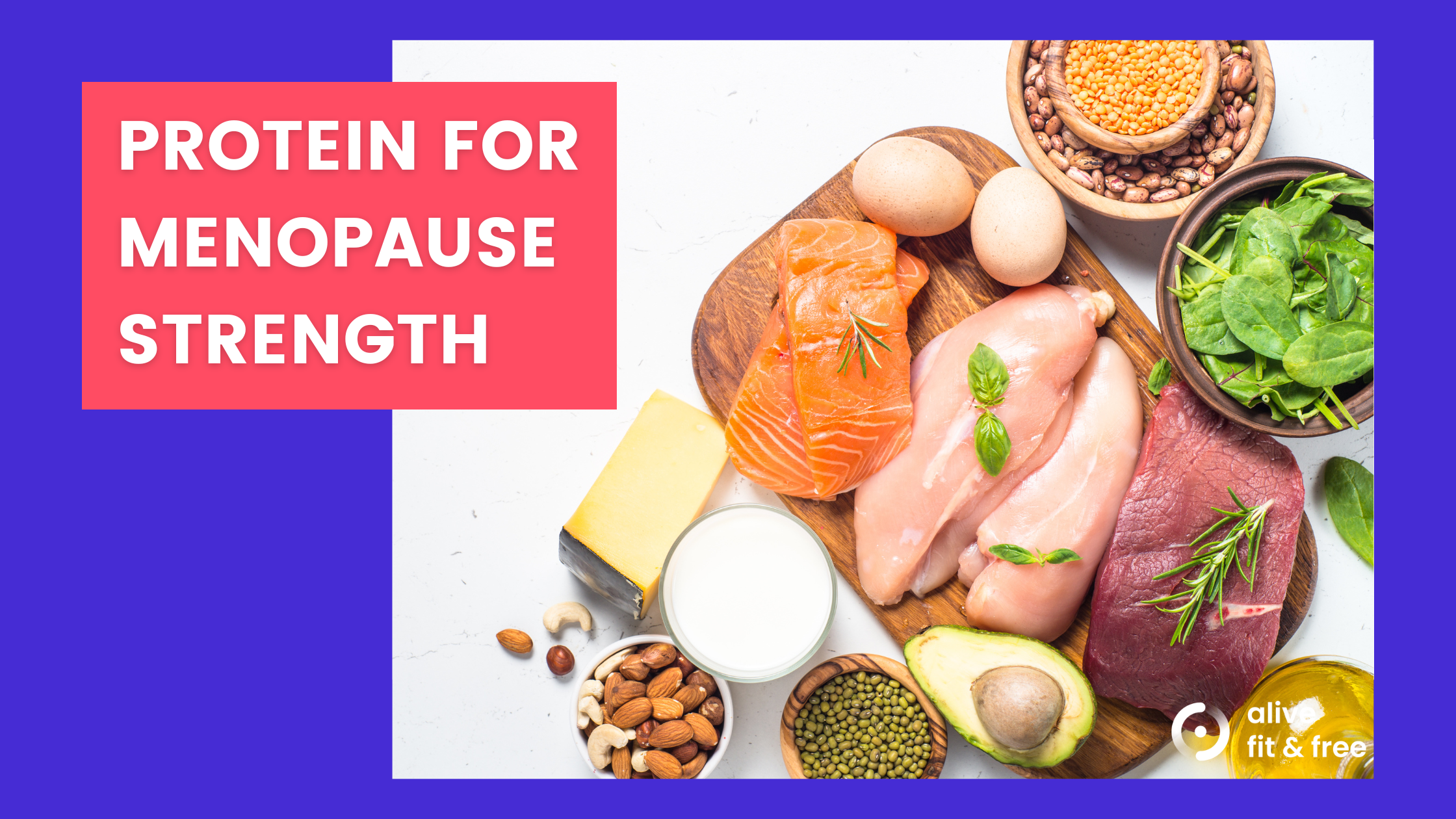Menopause brings a lot of changes to your body. But did you know that protein can help with many of these changes?
During menopause, it’s common to lose muscle mass and experience changes in metabolism. This is where protein becomes a superstar in helping you feel stronger and more energetic.
Why is Protein Important During Menopause?
As we age, we naturally lose muscle. When you go through menopause, your body naturally loses muscle faster than before. Protein plays a big role in building and maintaining muscle, which is essential for staying active and independent as you age. Muscle loss can lead to weakness, but protein helps keep your muscles strong. Protein also supports bone health, which is important since menopause can affect your bone density.
How Much Protein Do You Need in Menopause?
During menopause, it’s a good idea to boost your protein intake slightly. Your body needs more protein to help with the changes that are happening. Aim for 60-70 grams per day. Split up, that’s only 20 grams of protein with each meal. Don’t worry—it’s easy to get enough without eating lots of meat. Foods like eggs, fish, beans, and even nuts are excellent sources of protein that can help you manage menopause symptoms.
What Are the Best Sources of Protein?
Menopause is a time to focus on heart-healthy choices, and the right sources of protein can help. Not all proteins are created equal!! Lean proteins like chicken, turkey, and fish are great options. Just 4 ounces of chicken has 21g of protein. If you’re vegetarian or prefer plant-based options, try tofu, beans, or lentils. Garbanzo beans (that we talked about in a previous article) have 13g of protein in each 1/3 cup serving. Dairy, like yogurt and cheese, is also a good choice, but there are also non-dairy options like almond or soy milk with added protein that are great for women in menopause.
Should You Spread Protein Throughout the Day?
Yes! Eating protein at each meal is more helpful than getting it all at once, especially during menopause when your metabolism slows. Start with a protein-rich breakfast like eggs or yogurt to get your muscles working. Add protein to your lunch with a chicken or tuna salad to help keep your energy up. Include some more protein at dinner with beans or fish. Having protein throughout the day helps your body use the protein more effectively and keeps you feeling satisfied longer.
Can Protein Help With Menopausal Weight Gain?
Weight gain is a common complaint during menopause due to the hormonal changes that slow your metabolism. Protein helps to boost metabolism, making it easier to maintain a healthy weight. It also keeps you fuller for longer, which can reduce the urge to snack on unhealthy foods. By eating enough protein, you can better manage your weight during menopause.
Menopause changes a lot, but making sure you’re eating enough protein can make a big difference. It helps maintain your muscles, supports your bones, and even helps with weight control. So, when planning your meals, think about adding a little extra protein to stay strong and healthy.






